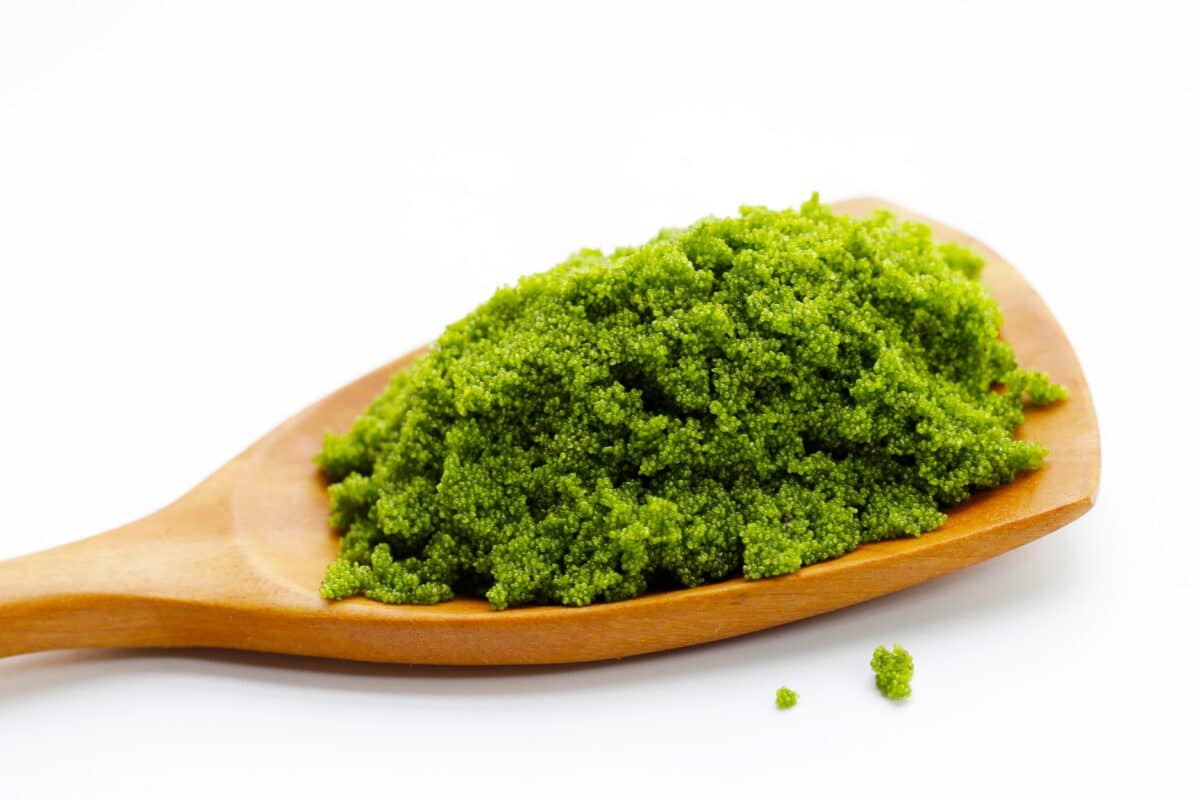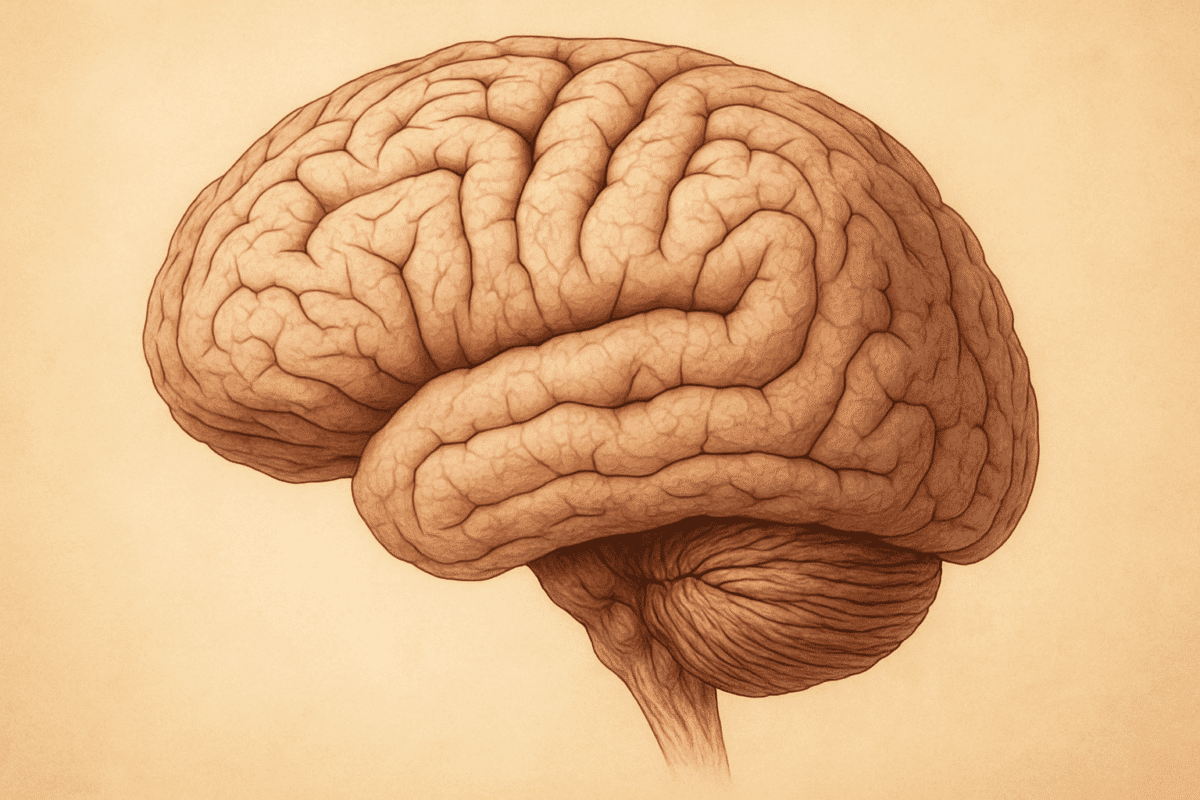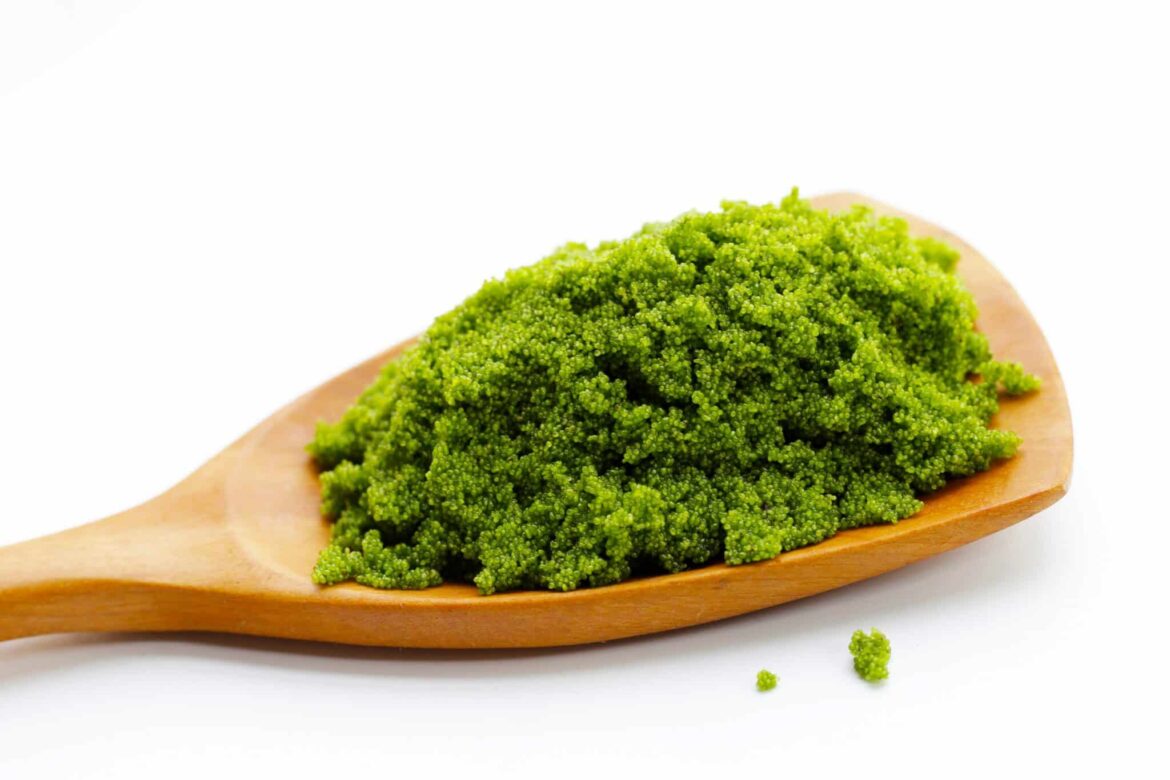
Wolffia globosa, also called Mankai duckweed or swamp algae. (Photo by Bowonpat Sakaew on Shutterstock)
Study shows that adding little-known plant Mankai to the green-Mediterranean diet boosts its brain-healthy benefits.
In A Nutshell
A special “green-Mediterranean diet” with Mankai shakes, green tea, and walnuts lowered a key protein linked to faster brain aging.
Green tea and walnuts showed the clearest individual benefits, while Mankai added support as part of the overall diet.
The trial lasted 18 months and involved nearly 300 adults with weight or cholesterol concerns.
Findings are promising but early, more research is needed to know if this approach truly protects memory or prevents dementia.
BOSTON — Most people have never heard of Mankai, a floating green speck that is technically the world’s smallest flowering plant. Yet new research suggests this tiny duckweed may play a role in supporting brain health—especially when combined with other plant-rich foods.
In an 18-month clinical trial of nearly 300 adults, participants who followed a “green-Mediterranean diet” rich in Mankai shakes, green tea, and walnuts showed favorable changes in blood proteins linked to faster brain aging. This analysis focused on proteomic changes related to brain age gap; the strongest diet effect was observed on Galectin-9 levels. The research does not prove that eating Mankai prevents Alzheimer’s or other brain diseases, but it aligns with growing research on cognitive protective diets.
The findings highlight how nutrition may influence brain aging processes. They add to a growing body of evidence that dietary choices can shape long-term brain function, though more research is needed to understand the practical implications.
Your Brain Has An Age
Scientists can now calculate “brain age” by comparing MRI scans to thousands of images from healthy people of different ages. When brain age exceeds chronological age, it signals accelerated aging that may predict future cognitive problems.
“Brain age estimation is commonly performed by predicting age from neuroimaging data in a healthy reference population,” researchers explained in their paper, published in Clinical Nutrition. People with positive “brain age gaps” have brains that appear older than their chronological age, while negative gaps suggest younger-appearing brains.

Illustration of an aging human brain, generated by OpenAI’s DALL·E via ChatGPT.
A Protein Signature of Brain Aging
Blood tests revealed two specific proteins that signal when brains age too quickly. Galectin-9 and Decorin were both elevated in people whose brain scans showed accelerated aging patterns.
Galectin-9 triggers inflammation in the brain by activating immune cells called microglia. When these cells become overactive, they release chemicals that can destroy brain tissue over time. Higher levels of this protein have been found in people with Alzheimer’s disease and mild cognitive impairment.
Decorin normally helps maintain healthy tissue structure, but elevated levels correlate with harmful protein buildup in the brain. Research shows that when Decorin increases in spinal fluid, it often signals early Alzheimer’s disease processes are beginning.
Both proteins act as early warning systems, alerting scientists to brain aging processes that might not become obvious for years. When researchers analyzed combined data from this and previous studies, they found that people with higher baseline levels of these proteins had lower cognitive test scores.
Mankai: The World’s Smallest Flowering Plant
Mankai (Wolffia globosa) measures less than two millimeters across but is nutrient-dense, providing protein and polyphenols, which are plant compounds that act as antioxidants.
In the green-Mediterranean group, participants consumed a daily Mankai shake, three to four cups of green tea, and a handful of walnuts, while reducing red and processed meat. This combination delivered nearly three times the polyphenols of a standard Mediterranean diet, and proved more powerful than any single ingredient.
After 18 months, participants on this plan showed a significant reduction in Galectin-9 compared with both their starting levels and the control diet. Decorin rose across all groups but increased least in the green-Mediterranean group.

Wolffia globosa, also known as Mankai duckweed, fresh water algae, water meal, and swamp algae. (Photo by frank60 on Shutterstock)
The Power Behind This Green-Mediterranean Food Combo
Here’s where things get practical. Green tea contains a compound called EGCG that researchers have been studying for years because of its potential to calm inflammation and prevent harmful buildup in the brain. Walnuts bring their own benefits through healthy fats and additional plant compounds, with previous research showing walnuts can improve brain function.
The numbers tell a clear story:
People who drank about four cups of green tea daily had lower levels of the brain aging protein
Those who ate seven servings of walnuts per week also showed improvements
Mankai shakes contributed to the overall pattern, but the combination was what really moved the needle
This makes sense when you consider how foods work in real life. We don’t eat single nutrients in isolation; we eat meals, snacks, and combinations that interact with each other in our bodies.
What This Means for Your Kitchen
If you’re curious about trying this approach, the reality is pretty straightforward. Mankai products exist mainly as powders or frozen cubes that blend into smoothies. They’re not widely available yet, but that might change as more research emerges.
For most people, the green tea and walnut combination offers a more accessible starting point. Both are available in regular grocery stores and have decades of safety data behind them.
The study also required people to cut back on red and processed meat, which aligns with general health recommendations anyway. So rather than adding exotic supplements, this approach is more about shifting toward plant-based choices that are already considered healthy.
The Reality Check
Before anyone gets too excited about this research, it’s worth remembering what this study can and can’t tell us. About 90% of the participants were men, and all of them had weight or cholesterol issues to begin with. The researchers only looked at 87 different proteins in the blood, and none were specifically designed to measure brain health.
Most importantly, the study didn’t include any cognitive testing at the start, so we can’t know if the protein changes actually translate to better thinking or memory. The researchers themselves admitted this was a limitation.
The trial was well-designed and lasted a year and a half, which gives the results some weight. But like most nutrition research, this is just one piece of a much larger puzzle. The effects on blood proteins are promising, but we’re still far from knowing whether this dietary approach prevents dementia or other brain diseases.
What Comes Next
Future studies will need to answer bigger questions: Do these protein changes actually predict better brain health years down the road? Do the results apply to women and healthier populations? Are there other ways to get similar benefits?
The scientists concluded that their research points toward potential benefits of the green-Mediterranean diet for addressing age-related brain changes. That’s encouraging, but it’s also a long way from a proven treatment or prevention strategy.
For now, this research adds to the growing evidence that food choices matter for brain health. The Mediterranean diet already has solid support for heart health and general wellbeing, and foods in the MIND diet have shown similar brain-protective benefits. This study suggests that emphasizing certain plant foods within that pattern might offer additional benefits for the brain.
The combination of green tea, walnuts, and this tiny aquatic plant represents an interesting nutritional approach worth watching. Whether it becomes a mainstream recommendation will depend on more research, but for people already interested in plant-based eating, it offers a specific direction to explore.
Paper Summary
Methodology
This randomized controlled trial included 294 participants aged 30 and older with either abdominal obesity or dyslipidemia. Participants were randomly assigned to three groups for 18 months: healthy dietary guidelines (control), traditional Mediterranean diet with walnuts, or green-Mediterranean diet high in polyphenols from green tea, walnuts, and Mankai duckweed while being low in red/processed meat. Researchers measured 87 blood proteins using proximity extension assay technology and calculated brain age using MRI scans and convolutional neural networks trained on healthy populations.
Results
Two proteins, Galectin-9 and Decorin, were significantly associated with accelerated brain aging at baseline. After 18 months, the green-Mediterranean diet group showed significant decreases in Galectin-9 levels compared to baseline and control group. Decorin increased across all groups but least in the green-Mediterranean group. Principal component analysis revealed favorable changes in the overall protein profile for participants following the green-Mediterranean diet. Higher baseline levels of both proteins were associated with lower cognitive test scores in combined data analysis.
Limitations
The study population was 90% male, limiting generalizability to women. All participants had metabolic abnormalities, restricting applicability to healthy populations. The protein panel was limited to 87 cardiovascular-related proteins rather than brain-specific markers. The study lacked baseline cognitive assessments and educational data. The 18-month duration may be too short to observe clinically meaningful cognitive changes.
Funding and Disclosures
Funding came from the German Research Foundation, Israel Ministry of Health, Israel Ministry of Science and Technology, and California Walnut Commission. One author received honoraria from pharmaceutical companies. The study was registered at ClinicalTrials.gov (NCT03020186) and approved by institutional review boards. Participants provided informed consent and received no compensation.
Publication Information
Pachter D, Yaskolka Meir A, Kaplan A, et al. “Serum Galectin-9 and Decorin in relation to brain aging and the green-Mediterranean diet: A secondary analysis of the DIRECT PLUS randomized trial,” published in Clinical Nutrition. 2025;53:99-108. DOI: 10.1016/j.clnu.2025.08.021


Dining and Cooking